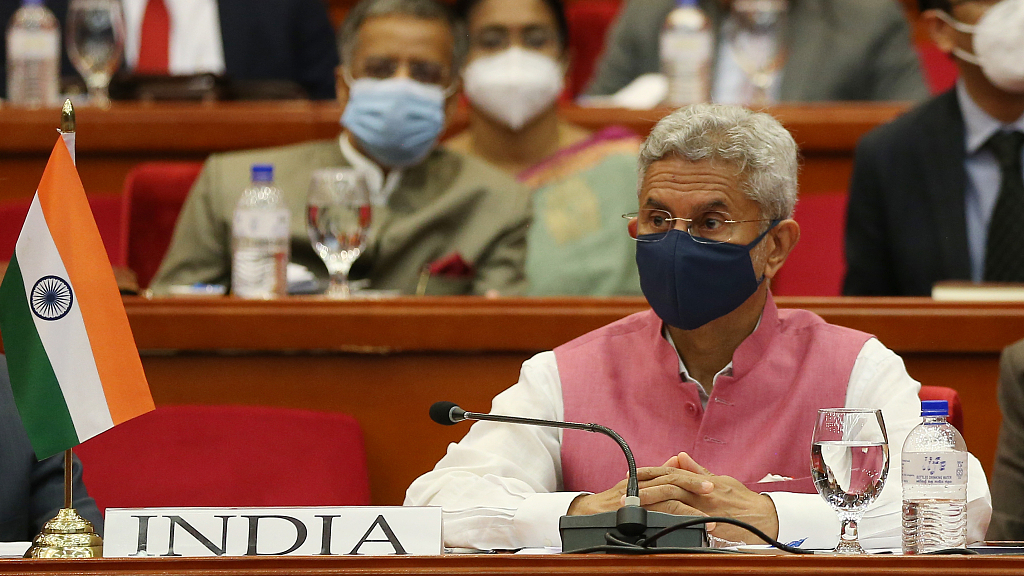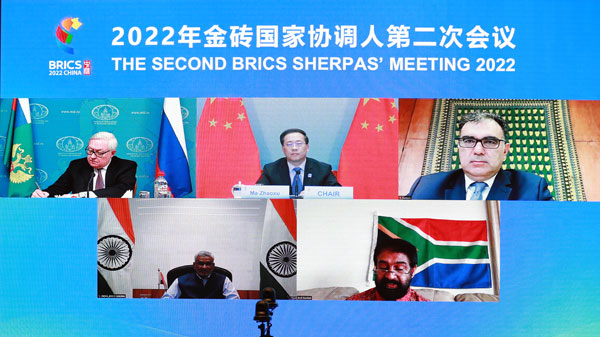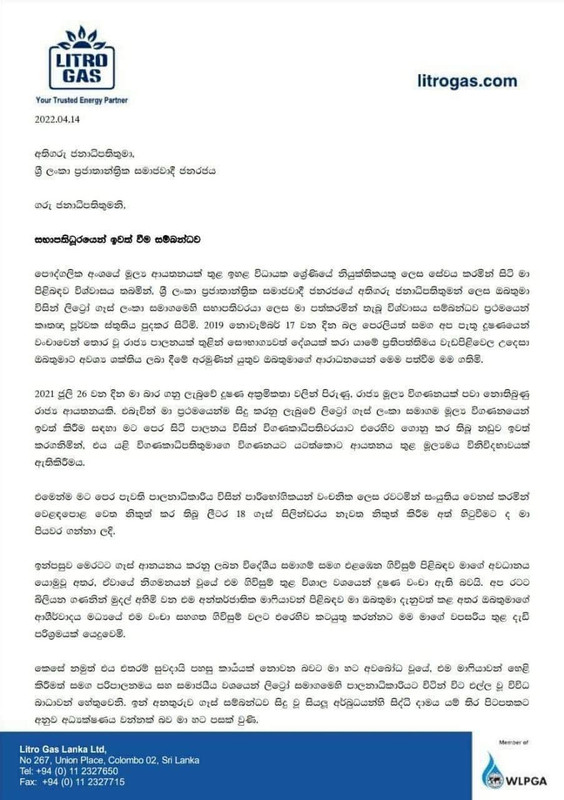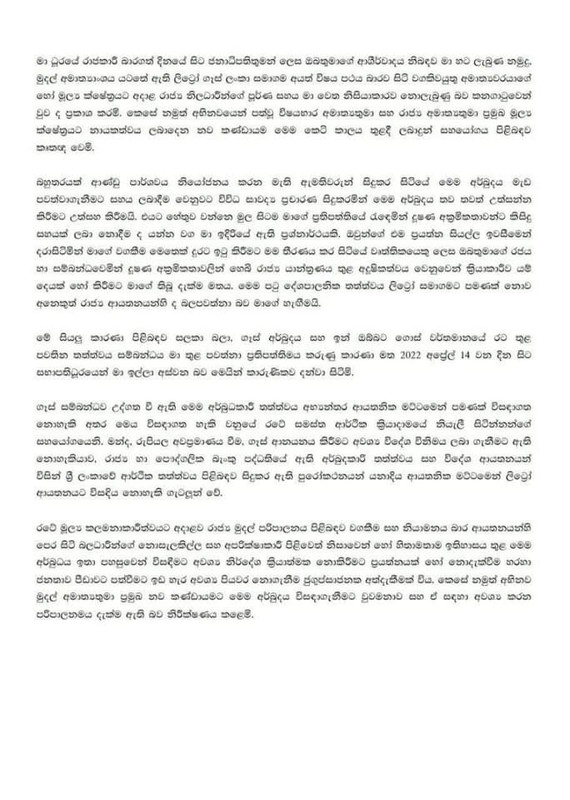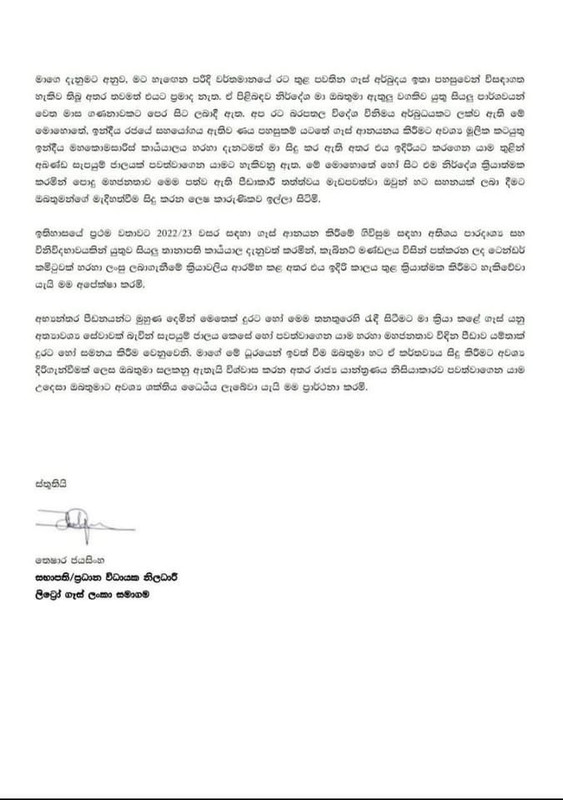How great is the 19th amendment to Sri Lanka’s constitution
April 16th, 2022Shenali D Waduge

There are increased calls to return to the 19th amendment, little do they know the confusions & contradictions that prevails an amendment presented as an Urgent Bill & passed given little or no time for the People to make their observations or for counsels to study, though the most alarming part was the incongruencies in what was submitted to Parliament differing to what was presented to the Supreme Court to determine. These inconsistencies hardly boast of anything great about 19th amendment for Sri Lanka to return to it without making changes.
19th amendment dealt with
- Executive Presidency / powers/Immunity
- Qualifications & term limits
- Dissolution of Parliament
- Returned the Independent Commissions under the Constitutional Council
- Members to Cabinet
- Right to Information
Executive Presidency / Prime Minister
- Age limit to contest – 35 years
- Unlimited Presidential term removed – Re-introducing term limit to hold office as President from unlimited (18tha) to 2 terms
- Dual Citizens could not contest [Clause 20(4) of the 19th Amendment, Article 91(1)(d)(xiii) of the Constitution]
- President could not remove Prime Minister – only Parliament.
- President has to take advice of PM when appointing & removing Cabinet Ministers/Non Cabinet & Deputy Ministers [Clause 9 of the 19th Amendment, Article 43(2), 44(1), 45(1) and 46(3)(a) of the Constitution]
- The President may chose to consult the PM in appointment/changes/removals to Cabinet/Non-Cabinet & Deputy Ministers [Clause 9 of the 19th Amendment, Article 43(1), 44(2) of the Constitution]
- The President may at any time change subjects/functions of cabinet/non Cabinet Ministers & composition of Cabinet [Clause 9 of the 19th Amendment, Article 43(3), 44(3) of the Constitution] – this is a contradictory clause
- President cannot dissolve Parliament at his discretion as earlier. President can dissolve Parliament only if 2/3 MPs pass resolution requesting dissolution or after 4 ½ years [Clause 17 of the 19th Amendment, Article 70(1) of the Constitution]
- Presidential Immunity removed – President is now subject to FR jurisdiction in Supreme Court. [Clause 7 of the 19th Amendment, Article 35 of the Constitution]
- Removes provision for President to submit to the People by referendum any Bill (not a constitutional amendment) rejected by Parliament. [Clause 19 of the 19th Amendment, by repealing what was previously Article 85(2) of the Constitution].
- Removal of President assigning himself any subject/function not assigned to a Cabinet Minister [Clause 9 of the 19th Amendment, by repealing amongst other provisions, what was previously Article 44(2) of the Constitution].
Parliament/Prime Minister
- No dual citizen can become a MP (Article 92b)
- Reducing Parliament term from 6 to 5 years [Clause 15 of the 19th Amendment, Article 62(2) of the Constitution]
- Cabinet & Non-Cabinet Ministers shall not exceed 30 & Deputy Ministers & those not members of Cabinet shall not exceed 40 [Clause 9 of the 19th Amendment, Article 46(1) of the Constitution]However a ‘government of national unity’ allows Cabinet Ministers to 45 and non-Cabinet & Deputy Ministers to 55. This provision will no longer only apply to the next Parliament. [Clause 9 of the 19th Amendment, Article 46(4) and (5) of the Constitution]
- Removes provision for government to pass legislation via Urgent Bills” where President could refer any Bill certified by Cabinet as urgent in the national interest” to Supreme Court directly & SC determined the Constitutionality of the Bill within 24rs to 72hrs depending on instructions of the President. [Clause 30 of the 19th Amendment, by repealing what was previously Article 122 of the Constitution]
- A Bill has to be made available to public (gazetted) & given 14 days before it is placed on the order paper of Parliament [Clause 18 of the 19th Amendment, Article 78(1) of the Constitution] – previously people had only 7 days
- It was clear from the 19a – that the clauses took into consideration the President in power & the Legislature that was formed via national government & a PM appointed immediately after the election of the President. Legality of appointing a PM immediately after a Presidential election, while the incumbent PM had not resigned or had been sacked remains questionable.
Constitutional Council
- 7 Members of Parliament & 3 eminent persons. PM, Speaker & Opposition Leader are permanent while President appoints 1 and PM appoints 2 and other member appointed by rest of Parliament. The 3 eminent persons should not be members of a political party & are chosen by the PM & Opposition Leader & their nominations approved by Parliament. Term of 3 years (CC will continue even if Parliament gets dissolved)
- Constitutional Council will require to approve nominees of President for Chief Justice/Judges of Supreme Court/President & Judges of the Court of Appeal/Members of Judicial Service Commission/Attorney General/Auditor General/IGP/Ombudsman/Secretary General Parliament [Clause 8 of the 19th Amendment, Article 41C (1) of the Constitution] – criteria not given
- 5 Constitutional Council members must be present. Recommendations, Approvals & Decisions must have support of 5 members. [Clause 8 of the 19th Amendment, Article 41E (3) of the Constitution], Chairman has no vote but only if there is equal vote – confusion as 5 members required for quorum and chairman doesn’t vote except for equal vote & in such a scenario, Chairman will be voting always.
- Decisions, approvals & recommendations by Constitutional Council cannot be challenged in Court of Law by FR [Clause 8 of the 19th Amendment, Article 41I of the Constitution]
- Article 41 of 19a – CC is immune from any legal action by any Court & no person nor institution can question decisions of the CC. Where is the democracy in this?
- Articles 41B and 41C of 19a – CC has to formulate rules on criteria for appointments which has not been done & made public. Why couldn’t selection criteria be given to the CC & the CC could have asked opinion from the Public & based on this the nominations could have been sent to the President.
- CC can reject the nominee of the President without valid reasons & President can keep sending names & this can become a virtual circus.
Independent Commissions
- Re-introduced – Election/Public Service/National Police/Human Rights/Commission to Investigate Allegations of Bribery & Corruption/Finance/Delimitation/National Procurement/Audit appointed by President only on recommendation of the Constitutional Council [Clause 8 of the 19th Amendment, Article 41B (1) of the Constitution] – Govt has virtual no say
- Election Commission on approval of the Constitutional Council can appoint Commissioner General of Elections [Clause 24 of the 19th Amendment, Article 104E(1) of the Constitution]
- Election Commission can prevent a political party in government from using State resources including state broadcasters for their election campaign [Clause 23 of the 19th Amendment, Article 104B(4) and (5) of the Constitution]
- Election Commission on approval of the Constitutional Council can appoint Commissioner General of Elections [Clause 24 of the 19th Amendment, Article 104E(1) of the Constitution]
- All Commissions except Elections Commission is responsible & answerable to Parliament (Article 41 (b) (6) but Article 104B (3) says Election Commission is ‘responsible & answerable’ to Parliament. But, role of Election Commission vis a vis Parliament is not given & no Standing Orders.
How independent” are the Independent Commissions?
- The Election Commission has just 3 members. But elections to Provincial Councils were postponed for 2 years by this Commission. When the President sacked the PM on 29 October 2018, a member of the Election Commission (Ratnajeevan Hoole) petitioned Supreme Court against holding elections. How unbiased” was this act by an independent” Commission member.
- The pandemic was used as an excuse to not conduct general elections due on 25 April 2020.
Right to Information
- Right to Access Information as provided for by law. (Clause 2 of the 19th Amendment, Article 14A of the Constitution) – contents of that Bill has not even been publicized and ridicules the nature of the people called Right to Information!
19a is full of misinterpretations & ambiguities.
19a says President may not hold a portfolio – how can this be when the President is Head of the Govt, head of Cabinet & Armed Forces & Defense?
As Head of Cabinet, the President is a Cabinet member.
The voters give executive powers to the President & voters also voted\ MPs to Parliament. Subjects and their powers are decided by the President.
President appoints all Ministers.
So what was the purpose of 19a to include President ‘may not’ hold a portfolio?
19a & Police Commission
19a prevented the termination of the IGP for his gross neglect of duty during the Easter Sunday massacres. The only solution was to send him on compulsory leave & appoint a deputy IGP.
19a prevents democracy (will of the people) by placing restrictions to the dissolution of Parliament (not until 4 ½ years of a 5 term govt) What was the logic behind this?
The President cannot dissolve Parliament & call for fresh elections especially during times that a Government is not functioning to people’s requirements. It was why the then PM’s party not only lost the people’s mandate but he could not even secure 10,000 votes.
19a usurped democracy
19a aspired to curb the Executive Powers given by the People to the President claiming it would provide good governance. This did not happen.
The Supreme Court judgement on the 13th amendment clearly establishes that to abolish the Executive Presidency while keeping Provincial Councils would mean a Federal Sri Lanka unless Executive Presidency is abolished together with the Provincial Councils. If the PCs are to remain then the Executive Presidency must continue. If the Executive Presidency is to be abolished so too must Provincial Councils.
Hidden objectives of the 19a (did not bring better democracy or good governance)
- Creating notion that Executive President’s powers were cause for Sri Lanka’s problems
- Making people not object to the Executive Powers spread to multiple institutions
- Putting unelectable persons to exercise executive powers (also proved a failure)
- Prevent those previously in power from returning to power
- Fantasy of the greatness of 19a resulted in ignoring security & economy
The reality is that for harmony of governance the President & PM has to be on the same page.
19a in reality weakened the Executive Powers by scattering it making governance impossible unless coordinated with the PM. 19a has made institutions under the President & PM redundant in the absence of cooperation.
19a weakened Sri Lanka.
Conflict between President & PM – Declare War & Fight
Article 30 of the Constitution makes President the Head of the State, Head of the Executive & the Government, Commander in Chief of the Armed Forces & has the right to declare war & peace.
Section 51 of 19a says ONLY the current President will hold the Ministry of Defense. That means though Article 30 says the President is Commander in Chief of the Armed Forces, he would not be able to hold a specific Ministry including that of the Ministry of Defense. So we have a situation where the President can declare war but he needs the support of the Defense Minister to fight the war & the Defense Minister has to be appointed on the recommendation of the PM. Yet the PM cannot direct the Defense Minister to fight a war as the President is the one who has to declare war as he is Commander-in-Chief.
Article 33a (2) attempts to slyly transfer power from President to PM removing the President’s prerogative under Article 154 and 154L to dissolve a provincial council/Parliament take over powers of the Provincial Council – it enables a step closer to the current speeded up efforts to declare a separate state
19a – Conflict between President & PM – appointment of Ministers
Article 43(2) of 19a President can only appoint Ministers from among Members of Parliament on advice of PM. As per this article, President is not a MP and thus unable to hold a Ministry.
While Article 30 (1) says President is the Head of State, Head of Executive, Head of Government, Commander in Chief of Armed Forces,
Article 42 (3) says PM shall be Head of the Cabinet.
Maithripala Sirisena held 3 ministries – Defense, Mahaweli Development & Environment. But these portfolios needed to have the concurrence of the PM but as per 19a – this provision was only applicable to Maithripala Sirisena. How can you have a constitutional amendment applicable for 1 President only?
If the PM was Head of the Cabinet – how can the President attend it?
President has to seek opinion of PM to appoint specific Ministers, but
Article 46(1) of 19a allows him to decide on the number of Ministers with restrictions
Article 43(1) of 19a allows him to decide subjects & functions of Ministers
Article 43(3) of 19a allows him to change functions, subjects & composition of the Cabinet without approval of PM – this means the President can keep changing Cabinet Ministers as he likes.
Article 50(a) of 19a allows President to appoint all Secretaries to Ministries
Article 42(3) of 19a President is a member of the Cabinet & Head of the Cabinet. Though he is a member & head of Cabinet, the President cannot hold a Ministry but he has to hold Cabinet meetings!
Article 33(2) of 19a – President makes Policy Statement of the Government in Parliament. What if the President is from a different party to the party holding majority in Government which means the PM should be making the policy statement though President is Head of State. What if the President & PM disagree on the policy – the President has the powers to keep on changing & appointing Secretaries of his choice & Ministers would have to work with these Secretaries.
Article 35(1) of 19a – President’s Immunity
Only where FR of PM or other person is violated & PM can petition SC and only if SC feels that the President has violated FR of the PM or some person, the AG is directed to rectify.
Where lies the conflict? The PM decides who should be Minister but the subjects & functions of these Ministers are decided by the President as well as the Secretaries assigned to the Ministries.
The situation leaves scope for conflict between the President & PM unless they cooperate.
While the powers of the President is curbed by 19a – he remains answerable to Parliament (Section 6 of 19a) in exercising, performing, discharging his duties including public security.
The Executive President is answerable to Parliament but Parliament is not answerable to anyone & PM is not subject to any sort of review. 19a does not provide any limitation to the PM’s powers.
19a & Supreme Court
Article 80(3) imposes a ban on Supreme Court from reviewing a law after it has been passed and no court or tribunal can inquire into it,
19th amendment to the Constitution was presented as an Urgent Bill & rushed into enactment. There was no public debate. What was presented to Parliament was not the Bill presented to the Supreme Court. 18 petitions were filed based on the Bill presented to Parliament. There were amendments to the amendments with little time for the Counsels to study them before making their submissions. Though public had to be privy to the Bill to make their deliberations within a week as per Article 121, they did not have the latest version to do so. This was a FR violation of the People’s rights. Article 122, gives Supreme Court 24 to 72 hours depending on the President’s decision (Urgent Bill). If Article 121 is applied, Court can take up to 3 weeks to make their deliberations & Bill cannot be taken in Parliament until the determination (Regular Bill). However, 19a was scheduled for debate on April 9 & 10, 2015 – 19a was rushed through Parliament as an Urgent Bill.
19th A was passed no different to how 13th A was passed. The Supreme Court was divided in the case of 13th a – with Chief Justice Sarvananda & 3 judges upheld the 13th A while 5 judges claimed it contravened Article 2 of the Constitution. When Judge Palinda Ranasinghe impugned certain provisions, the AG Shiva Pasupathi made the amendments to the Bill to make it consistent with the Constitution & it was hastily passed. 13th A remains a problem.
Article 2 of 19th amendment attempts to replace Article 4 (b) of the current Constitution which provides the President executive powers of the People including defense. This has to be read alongside Article 33A of 19th a which claims the President must act on advice of the PM or a Minister authorized by the PM. Thus though 19a says through Article 2(b) that executive powers are with the President, in reality it is negated by Article 33 A (2) and (3) which gives executive powers to the PM and not to the President.
This is a violation of the legal maxim ‘delegatus non potest delegare’ which in other words means delegated power cannot be delegated (thus the President cannot delegate powers given to him to the PM) – ‘shall’ is used as a mandatory requirement for the President in the 19th amendment (Articles 33A (2) and (3) reduces the President to a mere puppet in the hands of the PM and questions the duplicity in including a clause that says the President exercises the People’s power.
19a began as a concept paper which says President shall act on advice of the PM, some party leaders objected & it was removed from gazette presented to Parliament but was present in draft sent to the Supreme Court.
People must be aware of the contradictions & confusions of the 19a – while 20a dual citizenship must be removed, returning to 19a without dealing with the contradictions is not the solution.
Shenali D Waduge

